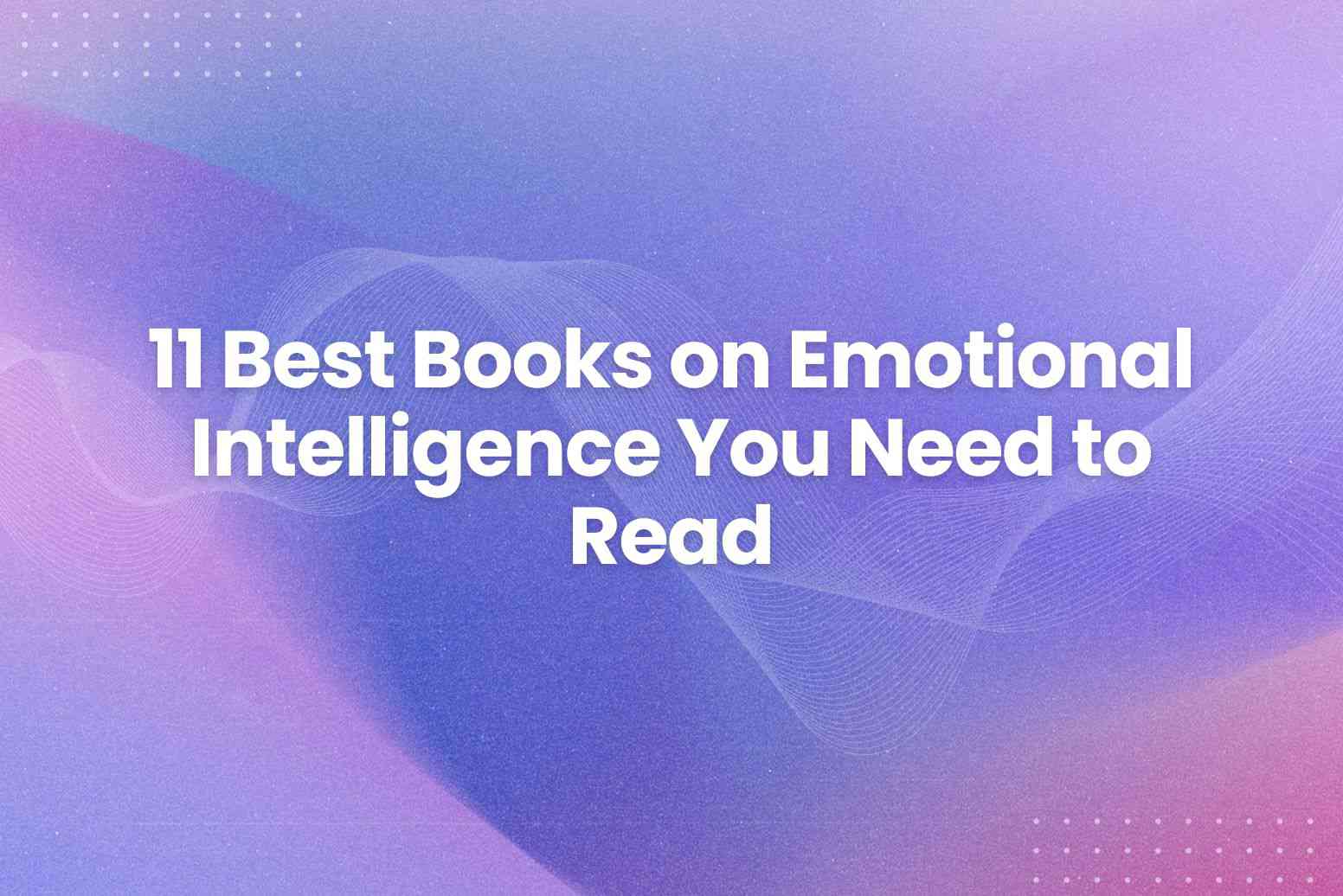Emotional intelligence is the ability to comprehend and regulate your own emotions as well as those of people around you. It calls for both social awareness of what other people could be going through and mindfulness of your own emotions.
It’s true that investing the time to raise your emotional intelligence pays you greatly. One of the best ways to understand and develop emotional intelligence is through reading books about it. This way, you can learn more and reflect on what you’ve learned. That’s why today, we have collected all the best books on emotional intelligence!
Unlock your emotional intelligence potential with Arvin! Ask for personalized book recommendations, insights, or tips on how to apply emotional intelligence in your life. Let’s find the perfect read for you!
Don’t miss: Best Books on Communication Skills That You Must-Read
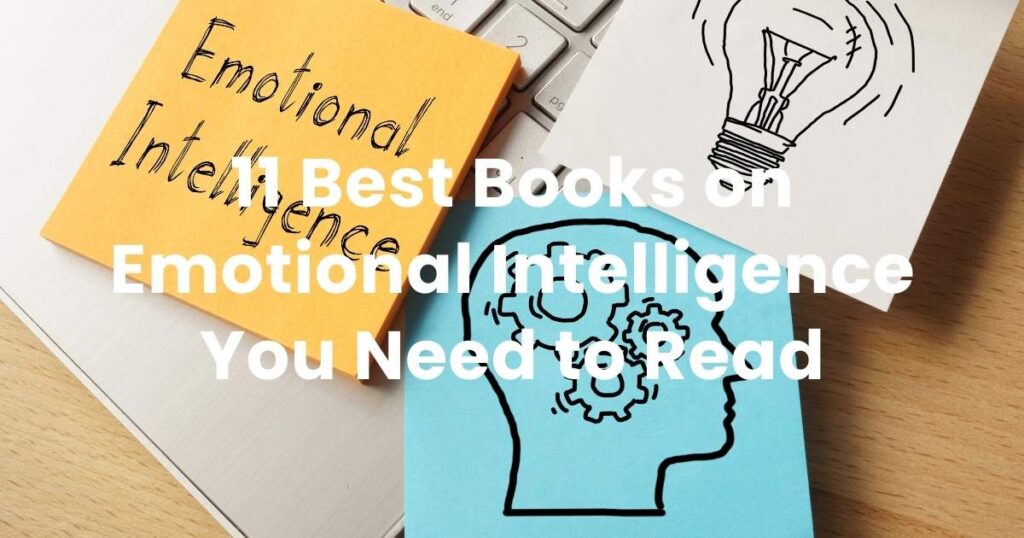
Working With Emotional Intelligence by Daniel Goleman
Working with Emotional Intelligence offers readers deep insights into the skills behind EI and how to develop them further. Goleman suggests EI is the most essential factor that sets great leaders apart from less effective ones. He introduces the five key sets of skills we can learn to evolve into emotionally intelligent professionals and organizations. His work is based on findings from hundreds of studies.
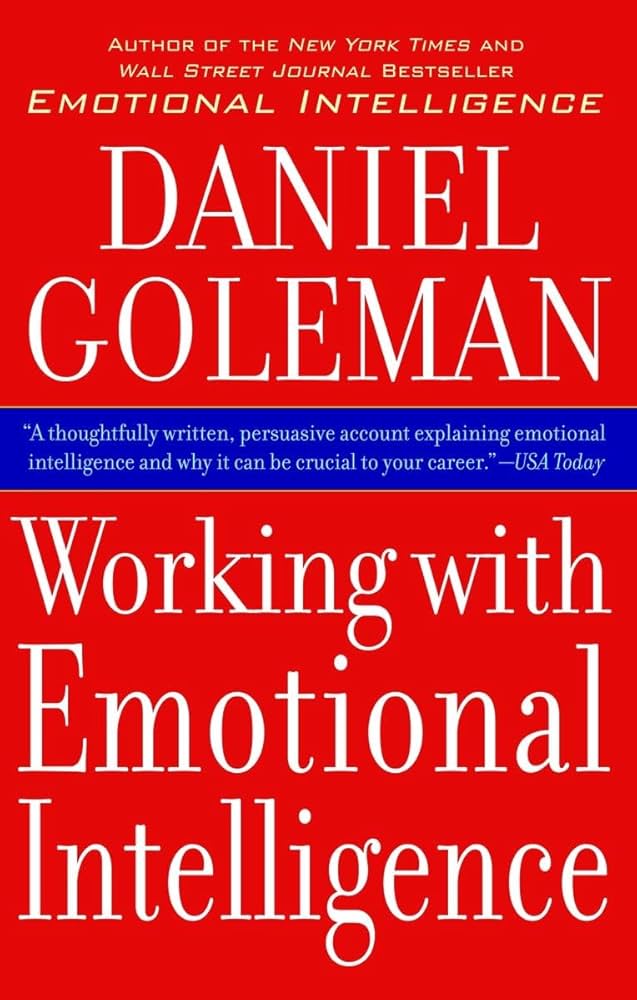
Destructive Emotions: How Can We Overcome Them? by Daniel Goleman
Goleman discusses Buddhist philosophy with the Dalai Lama to understand why destructive emotions arise and how to manage them better.
In doing so, he considers several powerful and challenging questions, including: What are the root causes of destructive behavior? How can we control the emotions that drive these impulses? Can we learn to live at peace with ourselves and others?
Goleman shares his thinking on what he describes as the three emotional poisons. That are craving, anger, and delusion. It also alongside with how we can use current thinking and scientific findings to nurture compassion for others.
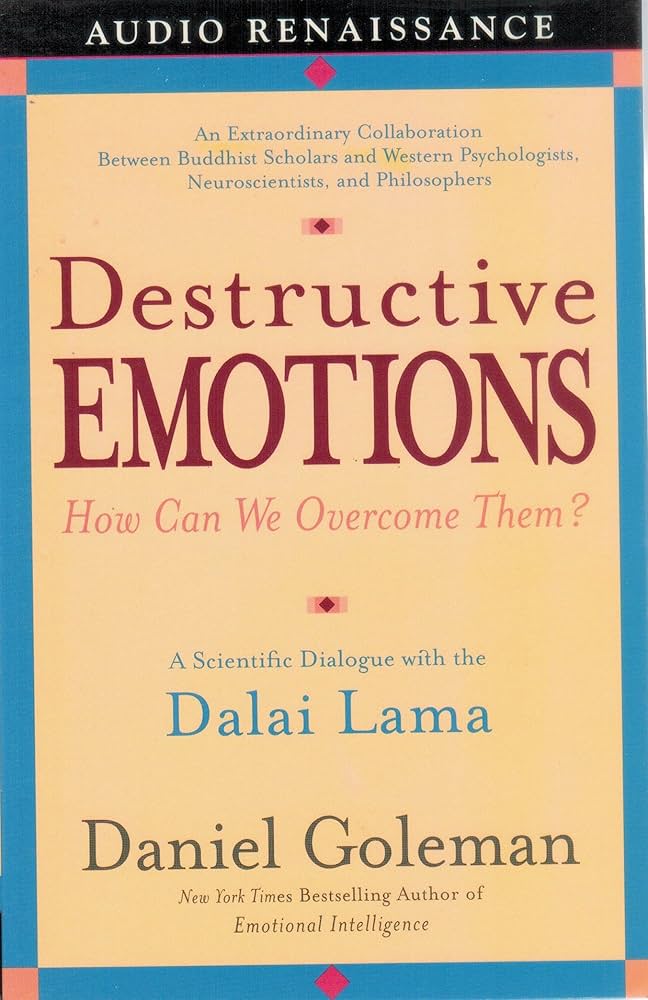
Social Intelligence: The Revolutionary New Science of Human Relationships by Daniel Goleman
Becoming aware of and understanding our emotions and those around us can positively impact our interpersonal world.
Goleman goes beyond our emotional and behavioral reactions to explore our biological responses. Those include the hormones that regulate many of the body’s most essential systems.
In this book about social intelligence, readers can dig deeper into many aspects of their lives, attempting to answer several important questions. Some questions such as how do we raise our children to be happy, and how can we inspire others?
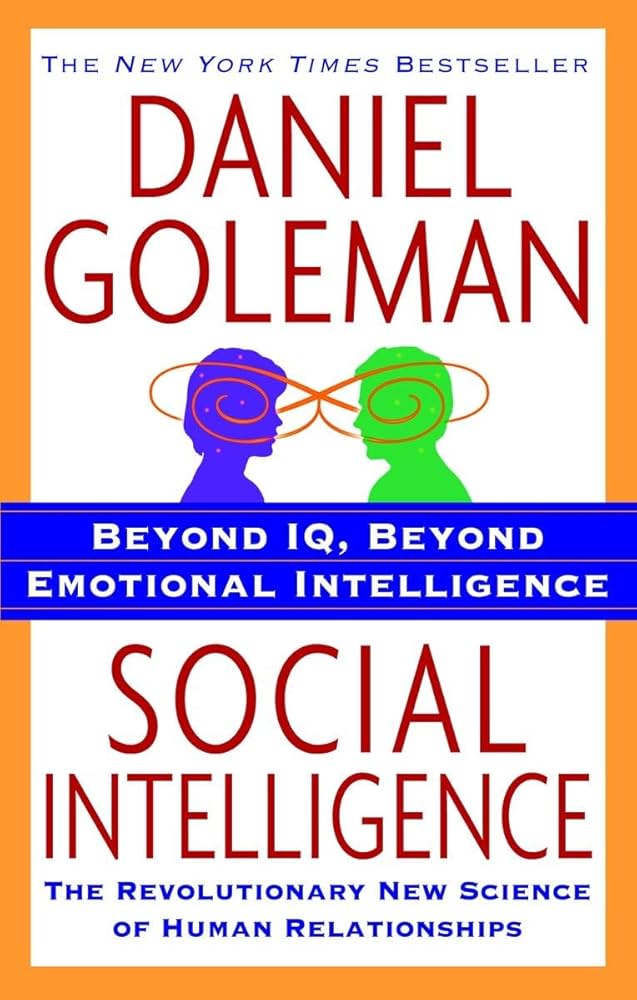
Primal Leadership: Unleashing the Power of Emotional Intelligence by Daniel Goleman
In Primal Leadership: Unleashing the Power of Emotional Intelligence, Goleman reassesses what it takes to become a great leader and discusses specific leadership styles.
The book is an action-oriented guide for developing the most vital qualities of leadership. And it explains why emotions remain at their core.
While written for business, its learnings are equally applicable to education and other complex organizations where leadership is essential, illustrating the need for self-awareness and empathic, motivating, and collaborative levels across hierarchies.
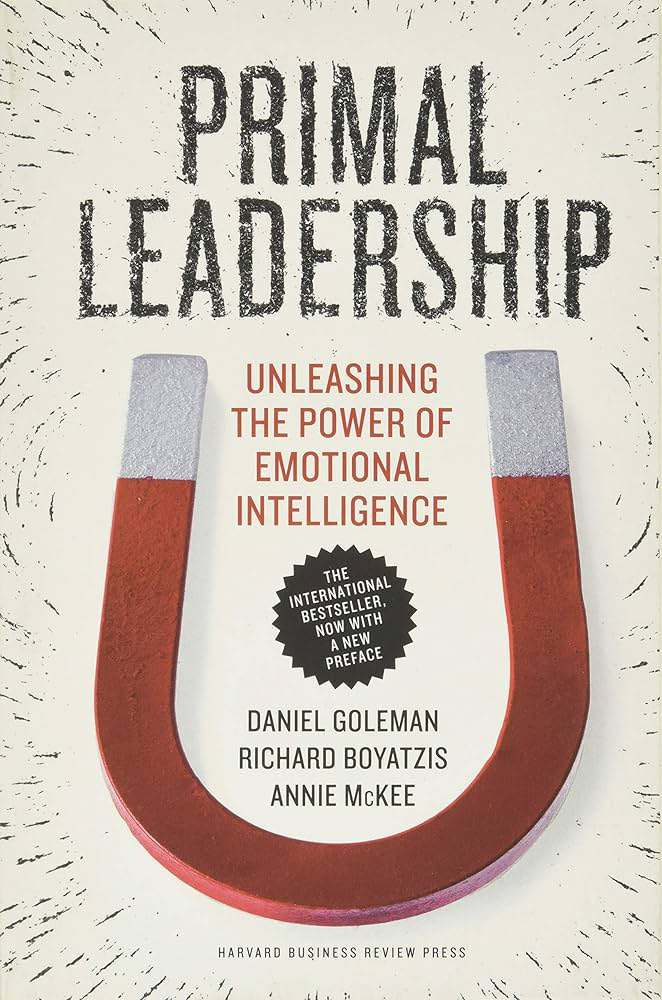
Optimal: How to Sustain Personal and Organizational Excellence Every Day by Daniel Goleman and Cary Cherniss
Daniel Goleman and Cary Cherniss’s recent book takes our understanding and application of EI to a new level. They reveal practical approaches for using our inner resources to enter optimal performance states while protecting us from burnout.
In doing so, they reveal how to increase the chance of experiencing our best and most productive selves while performing optimally in any situation.
Synthesizing more than three decades of research and thinking, the authors offer actionable tools and insights for individuals and organizations to boost high-performing teams and leadership qualities.
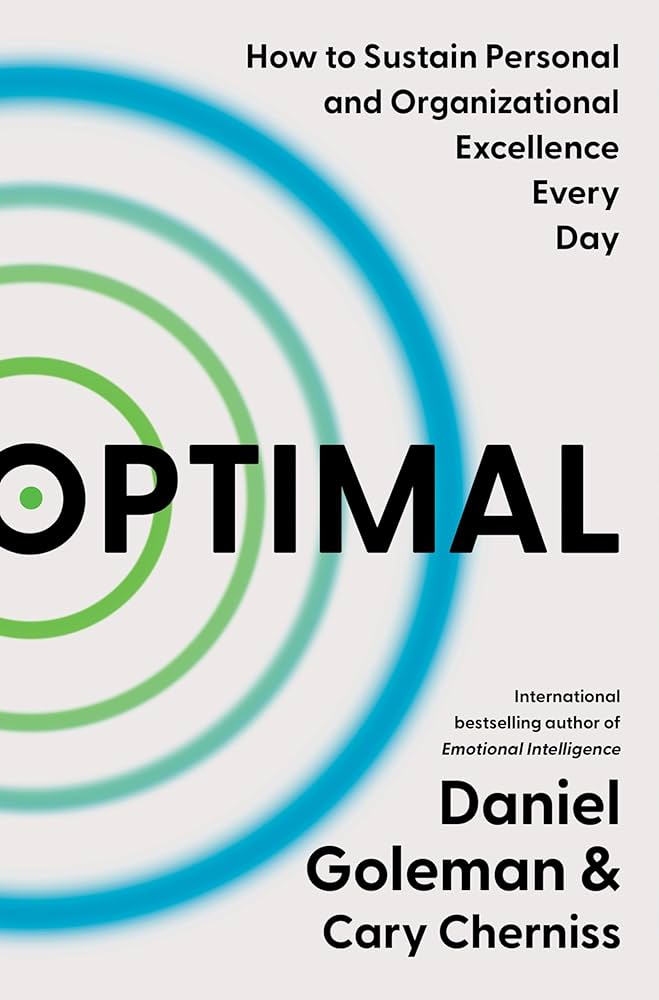
Emotional Intelligence 2.0 by Travis Bradberry and Jean Greaves
Travis Bradberry and Jean Greaves’s book offers a valuable text for developing and applying emotional self-awareness, self-management, social awareness, and relationship management in our lives and the workplace.
“The daily challenge of dealing effectively with emotions is critical to the human condition because our brains are hard-wired to give emotions the upper hand.”
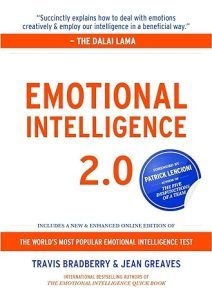
Emotional Intelligence: For a Better Life, Success at Work, and Happier Relationships by Brandon Goleman
Brandon Goleman shares advice and tools to bring higher emotional intelligence into our working relationships.
He covers essential areas of emotional awareness and application, including understanding why EI impacts our work and personal lives and how to read our own and others’ emotions, define our values better, influence others without being manipulative, and build meaningful and lasting connections.
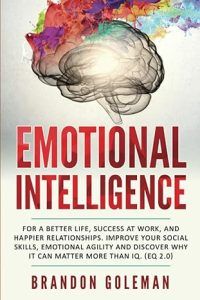
Emotional Intelligence: Self-Awareness by Harvard Business Review
This book is part of the Harvard Business Review series. It focuses on self-awareness, how to become more emotionally aware, and how thoughts and feelings impact their performance and relationships within their careers.
Including chapters by Daniel Goleman, Susan David, and Robert Steven Kaplan, this insightful and practical book encourages readers to understand their thoughts and emotions and to lead themselves and their organizations more effectively.
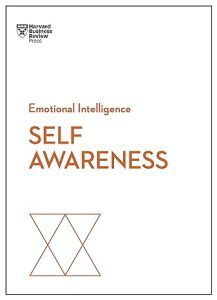
Emotional Intelligence for the Modern Leader: A Guide to Cultivating Effective Leadership and Organizations by Christopher Connors
Christopher Connors offers a practical guide to strategies, tools, and assessments to grow EI and apply it to leadership. The reader will learn the pillars of high-EQ leadership and its potential for improving organizational culture.
Connors helps leaders identify their professional leadership style and how it affects the people around them while offering tools to grow their abilities.
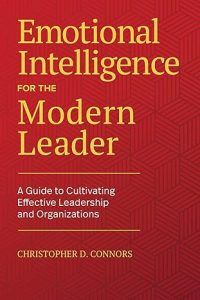
My Body Sends a Signal: Helping Kids Recognize Emotions and Express Feelings by Natalia Maguire
Using clear words and familiar situations is essential when teaching children about their emotions.
Natalia Maguire’s book is bright and colorful and uses simple stories to articulate the importance of emotions and activities for building empathy in a child’s life.
It also includes calming exercises and follow-up exercises for parents to use when working with their children.
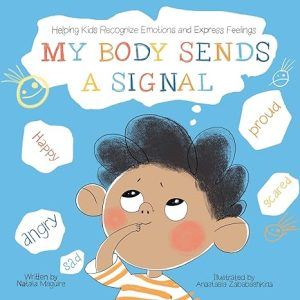
Me and My Feelings: A Kids’ Guide to Understanding and Expressing Themselves by Vanessa Green Allen
This is a popular book for parents teaching emotional intelligence to their children about what happens when “big feelings” come along and how to handle them.
Brightly colored and informative, this book offers practical tools, exercises, quizzes, and activities to support children in building empathy with their friends and families.
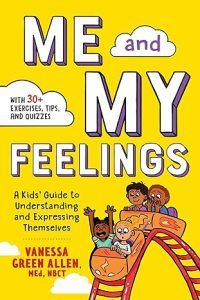
Conclusion
Reading the best books on emotional intelligence assists you in reaching higher levels of achievement in both your personal and work lives. Wherever it is, these books show us that our emotional intelligence is something that can grow and change. It greatly simplifies the process of managing connections, which promotes ease in friendships, romantic relationships, and commercial collaborations.
So whether you’re a brilliant EQ baddie, or you’re adding every book in this list to your cart, emotional intelligence is something that can help you thrive in your everyday life.
Let Arvin guide you through this list of the best books on emotional intelligence. Discover insightful recommendations, summaries, and key takeaways that can help you master your emotions and improve your relationships. Ask Arvin for personalized suggestions now!
FAQs
Emotional intelligence (EI) is typically understood as the ability to recognize, understand, manage, and influence one’s own emotions and the emotions of others.
The top five components of emotional intelligence are:
Self-Awareness: Recognizing and understanding your own emotions.
Self-Regulation: Managing emotions effectively.
Motivation: Being driven by intrinsic goals.
Empathy: Understanding others’ feelings.
Social Skills: Building and maintaining positive relationships.
Studies show that reading can help people build developmental skills of emotional intelligence and empathy, enabling our readers to better connect with other perspectives and human experiences.
The four domains of Emotional Intelligence — self awareness, self management, social awareness, and relationship management — each can help a leader face any crisis with lower levels of stress, less emotional reactivity and fewer unintended consequences.

